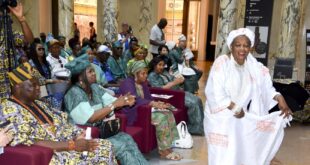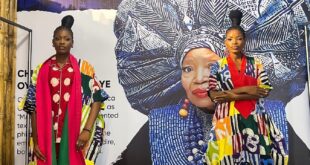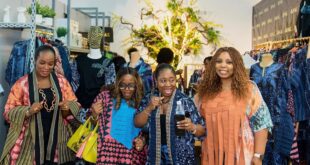Across the globe, Africa is putting its spin on the fashion industry. Major fashion markets like Berlin are embracing African fashion, art and culture, and locally, the apparel market is worth USD$31 billion, according to estimates by Euromonitor International.
While the African fashion retail industry remains in its infant stages, there has been notable progress in recent years as the industry embraces both old and modern approaches to fashion. In recent months, many African fashion designers have been tapping into the sustainable fashion trend.
Over the years, Africa has been known for its delayed response to environmental action and sustainability. However, since showcasing sustainable fashion at New York Fashion Week, African fashion brands have been trying to bring ethical fashion to the mainstream market – with mixed results.
Designers Are Turning To Recyclable Materials
The use of recycled materials in design is not necessarily a new concept. For instance, Nigerian-born furniture designer Yinka Ilori upcycles vintage and discarded pieces into new designs. Now, the practice has spread to the fashion industry with designers like Jendaya opting for recycled cardboard as packaging.
In London, Indian-Nigerian fashion designer Priya Ahluwalia is garnering attention on the international fashion scene with her upcycled menswear brand, Ahluwalia Studio. Countries like Mali and South Africa are also promoting local production models.
The ‘Made in South Africa’ label is designed as a four part plan by the government that aims to promote recovery and reconstruction of the country after the pandemic. It is hoped that this move will boost employment by 50 percent to 333,000 eventually, and boost the number of minority-owned small business enterprises in South Africa.
More Fashion Designers Are Offering Made-To-Order And Limited Collections
Elsewhere, fashion designers are being encouraged to embrace a smaller batch manufacturing process. In fashion, 35 percent of the material in the supply chain is wasted. That means that 35 percent of the fabric used by fashion designers ends up in landfills before the pieces have even reached the consumer. To combat this, fashion entrepreneurs are encouraging their colleagues to adopt a made-to-order model.
Second Hand Clothing Continues To Hold Popularity Amongst African Shoppers
Statistics published by the Ellen MacArthur Foundation estimate that the fashion industry is responsible for over 10 percent of global carbon emissions. The impact is so great that it surpasses the emissions of all international flights and maritime shipping combined.
As the world continues to look for ways to reduce CO2 emissions, second-hand clothing has come into the limelight. For decades, the used clothing market has been popular in Africa. Besides the higher chance of affordability, used clothing (known as chagua in Kenya, or salula in Zambia) is now worn by 80 percent of Africans, including an increasing percentage of thrifty and design-conscious gentlemen. With men becoming more aware of fashion trends and personal style statements, the second-hand clothing market will be key for fashion-forward men with a budget.
There is, however, a downside to the soaring popularity of second-hand clothing sales. As more Western consumers opt to donate their used clothing, the fashion market is becoming more difficult for upcoming designers. An already competitive market, the fashion industry is becoming inundated with cheaper used options – options that are more suitable for the average income of African consumers. The concern about this issue has been so serious that there has even been a proposal to ban secondhand clothing by East African countries, including Uganda, Tanzania and Rwanda.
While there remains much more to be done, it is refreshing to see some progress being made in the area of sustainable fashion within Africa. With better education and more support from key policymakers, the much-needed overhaul for the rising African fashion market is within reach.
Sara O’Hare
 THE AFRICAN COURIER. Reporting Africa and its Diaspora! The African Courier is an international magazine published in Germany to report on Africa and the Diaspora African experience. The first issue of the bimonthly magazine appeared on the newsstands on 15 February 1998. The African Courier is a communication forum for European-African political, economic and cultural exchanges, and a voice for Africa in Europe.
THE AFRICAN COURIER. Reporting Africa and its Diaspora! The African Courier is an international magazine published in Germany to report on Africa and the Diaspora African experience. The first issue of the bimonthly magazine appeared on the newsstands on 15 February 1998. The African Courier is a communication forum for European-African political, economic and cultural exchanges, and a voice for Africa in Europe.


































